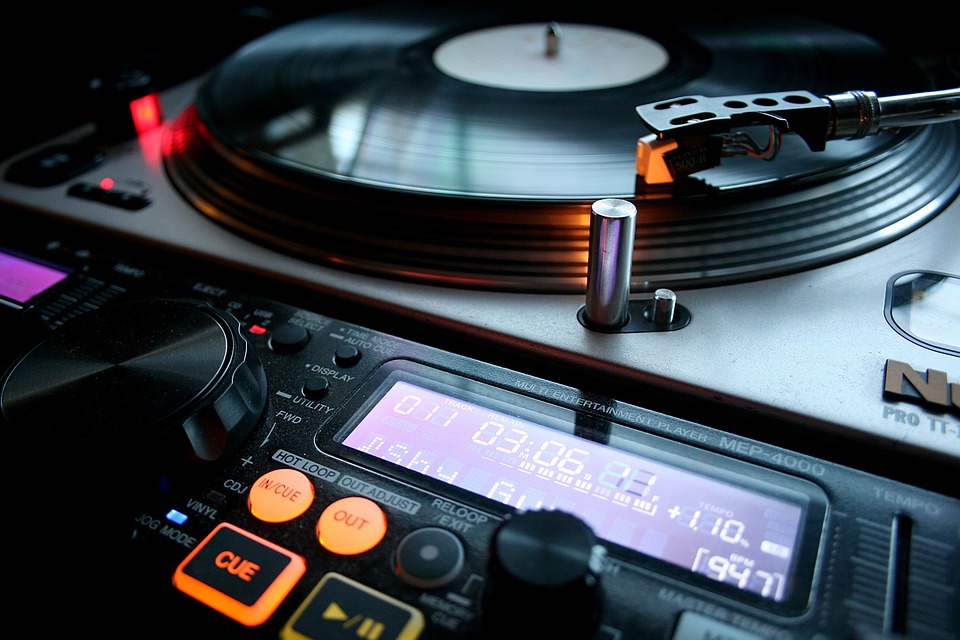Choosing the right mixer can significantly impact your music production and live sound experience. Allen & Heath and Yamaha are two prominent brands in the audio mixing industry, each offering a range of products tailored to different needs. This article will delve into the features, benefits, and considerations of both brands to help you make an informed decision.
Understanding Allen & Heath Mixers
Allen & Heath is a British company known for its high-quality audio mixing equipment. Established in 1969, the brand has garnered a reputation for producing reliable and innovative mixers suitable for various applications, including live sound, studio recording, and DJ setups. Their products are often favored by professionals due to their robust build quality and advanced features.
One of the standout features of Allen & Heath mixers is their user-friendly interface combined with powerful functionality. Many models come equipped with digital signal processing, allowing for enhanced audio manipulation. Additionally, Allen & Heath mixers often feature extensive routing options, making them versatile for different sound environments.
Exploring Yamaha Mixers
Yamaha, a well-established name in the music industry, has been producing mixers for decades. Known for their durability and affordability, Yamaha mixers are a popular choice among musicians, sound engineers, and event organizers. The brand offers a wide range of mixers, from compact models for home studios to larger consoles for professional venues.
Yamaha mixers are renowned for their intuitive design and reliable performance. Many models come with built-in effects and processing capabilities that enhance sound quality and provide creative options for users. Furthermore, Yamaha’s commitment to innovation is evident in their digital mixers, which often feature advanced connectivity options and user-friendly interfaces.
Comparing Features and Specifications
When deciding between Allen & Heath and Yamaha mixers, it’s essential to compare their features and specifications. Both brands offer a range of mixers with varying channel counts, input/output options, and built-in effects. For example, Allen & Heath’s Qu series mixers are known for their touch-screen interface and extensive channel processing capabilities, making them ideal for complex live sound situations.
On the other hand, Yamaha’s MG series offers a more straightforward approach, focusing on essential features without overwhelming the user. These mixers are perfect for beginners or those who prefer a more streamlined mixing experience. Additionally, Yamaha’s digital mixers, such as the CL series, come with advanced networking capabilities, allowing for easy integration into larger audio systems.
Sound Quality and Performance
Sound quality is a critical factor when choosing a mixer. Both Allen & Heath and Yamaha are known for their excellent audio performance. Allen & Heath mixers tend to have a warmer sound profile, which many users appreciate for its natural tonal quality. This is especially beneficial in live sound settings, where clarity and warmth are essential.
Yamaha, conversely, is often praised for its clear and transparent sound, making it suitable for various music genres. The brand’s mixers are designed to handle a wide frequency range, ensuring that all audio elements are well-represented. Ultimately, the choice between the two may come down to personal preference regarding sound character.
Ease of Use and Learning Curve
For beginners or those new to audio mixing, the ease of use is a significant consideration. Allen & Heath mixers, especially their digital models, may have a steeper learning curve due to their advanced features and complex routing options. However, once users become familiar with the interface, they often find that the mixer offers extensive creative possibilities.
Yamaha mixers, particularly the MG series, are designed with simplicity in mind. Their straightforward layout and fewer features make them more approachable for new users. This accessibility can be a crucial factor for those who want to get started with mixing without feeling overwhelmed by technical complexities.
Portability and Build Quality
Portability is another essential aspect, especially for musicians and sound engineers who frequently travel for gigs. Both Allen & Heath and Yamaha mixers are built to withstand the rigors of live performance. However, there are some differences in their designs. Allen & Heath mixers are often more substantial, reflecting their robust build quality, which can be an advantage in terms of durability.
Yamaha mixers, particularly the smaller models, are generally lighter and more compact, making them easier to transport. This is particularly beneficial for mobile setups or smaller venues. However, users should consider the trade-off between portability and durability when making their choice.
Price Range and Value for Money
Price is an important factor for many buyers, and both Allen & Heath and Yamaha offer products across a range of price points. Allen & Heath mixers tend to be on the higher end of the spectrum, reflecting their professional-grade features and build quality. However, many users feel that the investment is justified due to the longevity and performance of the equipment.
Yamaha, on the other hand, provides budget-friendly options without compromising sound quality. Their mixers often deliver excellent value for money, making them an attractive choice for beginners or those on a tighter budget. Ultimately, potential buyers should evaluate their needs and budget to find the right mixer for them.
Support and Community
Another factor to consider when choosing between Allen & Heath and Yamaha is the level of support and community available. Both brands have established a solid reputation in the audio mixing industry, which means there are plenty of resources, including forums, tutorials, and customer support, for users to tap into.
Allen & Heath has a dedicated community of professional users who often share tips and tricks for maximizing the use of their mixers. Yamaha also has a vast user base, and their products are widely used in educational institutions, which contributes to a robust support network. Whichever brand you choose, you can expect to find a wealth of information and assistance available online.
Conclusion
Choosing between Allen & Heath and Yamaha mixers ultimately depends on your specific needs, preferences, and budget. Allen & Heath offers professional-grade mixers with advanced features suitable for complex audio environments, while Yamaha provides user-friendly options that are accessible and affordable. Consider factors such as sound quality, ease of use, portability, and support when making your decision. Both brands have their strengths, and the right choice will enhance your music mixing experience.
FAQs
1. Can I use Allen & Heath mixers for home recording?
Yes, Allen & Heath mixers are suitable for home recording, especially their smaller models designed for studio use. They provide high-quality audio processing and routing options that can enhance your recordings.
2. Are Yamaha mixers good for live performances?
Absolutely! Yamaha mixers are widely used in live sound applications due to their reliability and sound quality. Their various models cater to different performance needs, from small gigs to large events.
3. Do both brands offer digital mixers?
Yes, both Allen & Heath and Yamaha have a range of digital mixers. Allen & Heath’s Qu series and Yamaha’s CL series are examples of their advanced digital mixing consoles, equipped with various features for professional use.
4. Which brand has a better warranty policy?
Warranty policies can vary by model and region, but generally, both Allen & Heath and Yamaha offer competitive warranties. It’s advisable to check the specific warranty terms for the model you are considering.
5. Can I connect these mixers to my computer for music production?
Yes, both Allen & Heath and Yamaha mixers can be connected to computers for music production. Many models feature USB connectivity, allowing you to integrate them into your digital audio workstation (DAW) setup easily.


